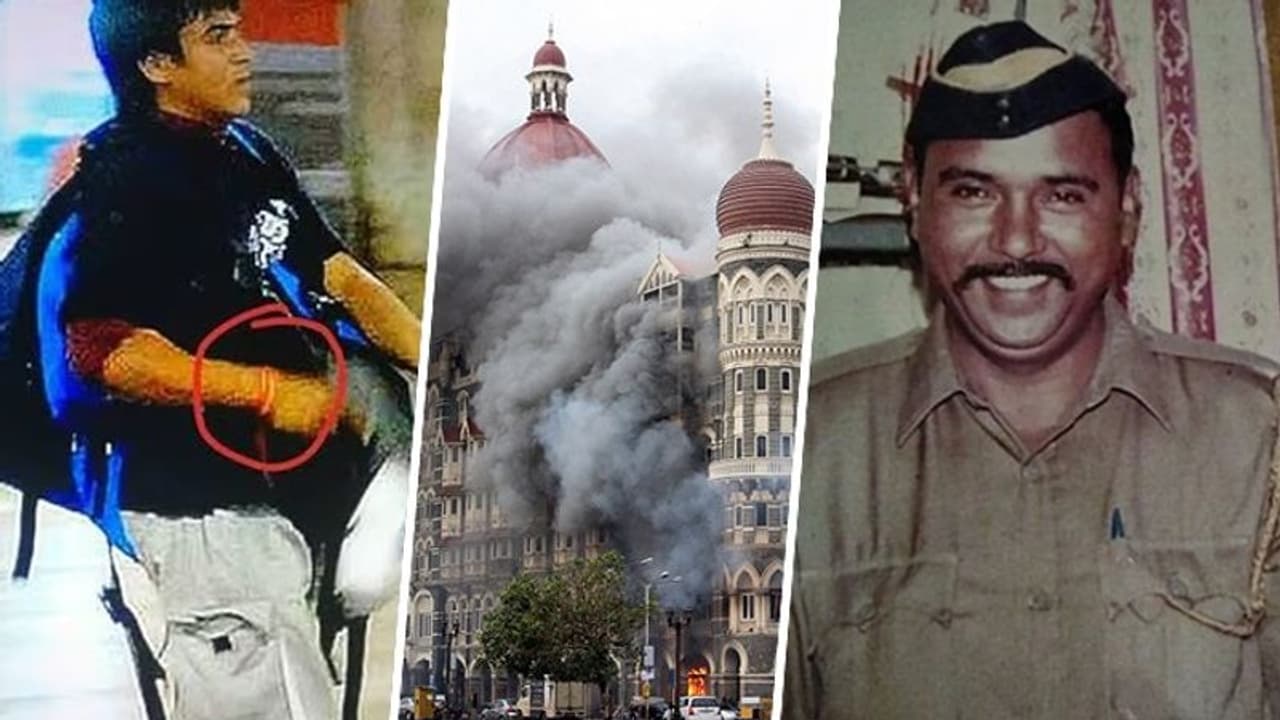During the 2008 Mumbai terror attacks, ASI Tukaram Omble's selfless act cost him his life, but ensured that Lashkar-e-Taiba terrorist Ajmal Kasab was captured alive, which proved pivotal in uncovering the larger conspiracy that held Pakistan responsible for its role in waging war against India.
The 26/11 terror attacks in Mumbai left an indelible mark on the nation's history. The coordinated attacks by 10 Pakistan-based Lashkar-e-Taiba terrorists targeted iconic landmarks - Taj Hotel, Leopold Cafe, Chhatrapati Shivaji Maharaj Terminus, Oberoi Trident, Cama Hospital and Nariman House - in 2008, resulting in the loss of 165 innocent lives. Amidst the tragedy, one man's sacrifice stood out - Assistant Sub-Inspector of Mumbai Police Tukaram Omble, who courageously captured Ajmal Kasab alive. Omble's selfless act cost him his life but ensured that the lone surviving terrorist was apprehended. This proved pivotal in uncovering the larger conspiracy, holding Pakistan accountable for its role in the attacks and also potentially prevented the distortion of truth that could have perpetuated harmful narratives.

In the aftermath of the 26/11 attacks, an image of Ajmal Kasab, the lone captured terrorist, wearing a Kalava thread circulated widely. The Kalava, a sacred thread worn in Hinduism, sparked controversy and raised concerns about the potential misinterpretation of the attacks as a 'Hindu terror' plot. Former Mumbai Police Commissioner Rakesh Maria, in his autobiography 'Let Me Say It Now', claimed that Pakistan's intelligence agency ISI had also tried to disguise the 26/11 attack as Hindu terrorism. Fake ID cards were sent to the 10 attackers to prove them to be Hindus. A similar ID card was also found with Kasab, on which Sameer Chaudhary was written.
Despite the apprehension of Kasab, notable politicians persisted in suggesting the involvement of "Hindu terrorists" in the 26/11 attacks. It was only through Abu Jundal's confession that the true plot was revealed. Jundal, a native of Beed in Maharashtra who was extradited to India from Saudi Arabia in 2012, was involved in the planning of the 26/11 attacks. Jundal informed investigators that it was his proposal to attribute the attacks to Hindus. Allegedly, the terrorist group aimed to portray it as a retaliatory strike following the arrest of Sadhvi Pragya Singh and Lt Colonel Prasad Purohit, who were accused in connection with the 2008 Malegaon blasts.
Jundal additionally composed a letter intended for distribution to media outlets. Penned in Hindi, the letter falsely claimed responsibility for the attack on behalf of the non-existent group 'Deccan Mujahideen.' The strategy aimed to create suspicion towards Hindus by planting IDs with Hindu names and saffron bands, leading the police to potentially conclude that a fabricated Muslim group was being falsely implicated to divert the investigation. However, Tukaram Ombale played a pivotal role in preventing the distortion of facts and preserving the truth behind the 26/11 attacks.
Also read: 15 years post 26/11 terror attacks: Several perpetrators still await trial
During the encounter with Kasab at Girgaum Chowpatty, Ombale displayed extraordinary courage and presence of mind. Despite being unarmed and facing heavily armed terrorists, Ombale fearlessly grabbed Kasab's weapon, sacrificing his life in the process. His heroic act not only saved the lives of his fellow officers but also ensured the capture of Ajmal Kasab alive. Kasab's capture proved crucial in unraveling the intricate details of the 26/11 attacks. His confession and subsequent trial provided irrefutable evidence of Pakistan's involvement in the planning and execution of the attacks.
As the nation commemorates the heroes of 26/11, India continues to recognise Tukaram Ombale's unparalleled bravery and sacrifice. 15 years on, several Indians took to social media urging the government and PM Narendra Modi to posthumously honour Omble with Bharat Ratna, India's highest civilian honour.
